Sinus Infection
Overview
A sinus infection, also known as sinusitis, is an inflammation or infection of the sinuses, which are hollow cavities in the skull located around the nose and eyes. Sinusitis can be acute (short-term) or chronic (lasting longer than 12 weeks), and it can be caused by various factors, including viruses, bacteria, fungi, allergies, or structural issues within the nasal passages.
Signs and Symptoms of Sinus Infection:
- Nasal Congestion: One of the most common symptoms is a blocked or stuffy nose. This occurs when the sinuses become swollen and produce excess mucus.
- Facial Pain or Pressure: You may experience pain or pressure around your forehead, eyes, cheeks, or the bridge of your nose. This is often described as a "sinus headache."
- Discolored Nasal Discharge: Sinusitis can lead to thick, discolored mucus, which may be yellow or green.
- Coughing: A persistent cough, especially at night, can be a symptom of sinusitis, as postnasal drip can irritate the throat.
- Sore Throat: The drainage of mucus into the throat can cause throat irritation and a sore throat.
- Fatigue: Sinus infections can make you feel tired and generally unwell.
- Fever: In cases of bacterial sinusitis, fever may be present, although it's less common in viral sinusitis.
- Bad Breath: Foul-smelling breath (halitosis) can result from infected mucus.
Treatment of Sinus Infection:
The treatment of sinusitis depends on its underlying cause (viral, bacterial, allergic, or structural) and whether it's acute or chronic. Here are some common approaches to treating sinus infections:
Home Remedies:
Nasal Irrigation: Using a saline solution or a neti pot can help flush out mucus and alleviate symptoms.
Steam Inhalation: Inhaling steam can relieve congestion and ease sinus discomfort.
Hydration: Staying well-hydrated can thin mucus and help with drainage.
Rest: Getting adequate rest helps the body recover more quickly.
Over-the-Counter Medications:
Decongestants: These can temporarily relieve nasal congestion, but they should not be used for an extended period due to the risk of rebound congestion.
Pain Relievers: Over-the-counter pain relievers like acetaminophen or ibuprofen can help with pain and fever.
Prescription Medications:
Antibiotics: If the sinus infection is bacterial, you may be prescribed antibiotics. However, not all sinus infections are bacterial, so antibiotics may not always be necessary.
Corticosteroids: These can help reduce inflammation in the sinuses and may be prescribed for severe or chronic sinusitis.
Allergy Management: If allergies contribute to your sinusitis, allergy medications or allergy shots (immunotherapy) may be recommended.
Surgery: In cases of chronic or recurrent sinusitis that doesn't respond to other treatments, surgery to correct structural problems or improve sinus drainage may be necessary.
It's essential to consult a healthcare professional for a proper diagnosis and treatment plan, as misusing antibiotics or relying solely on over-the-counter remedies can be ineffective or even harmful. Additionally, chronic sinusitis may require a more in-depth evaluation by an ear, nose, and throat specialist (otolaryngologist) to determine the underlying cause and appropriate management.
